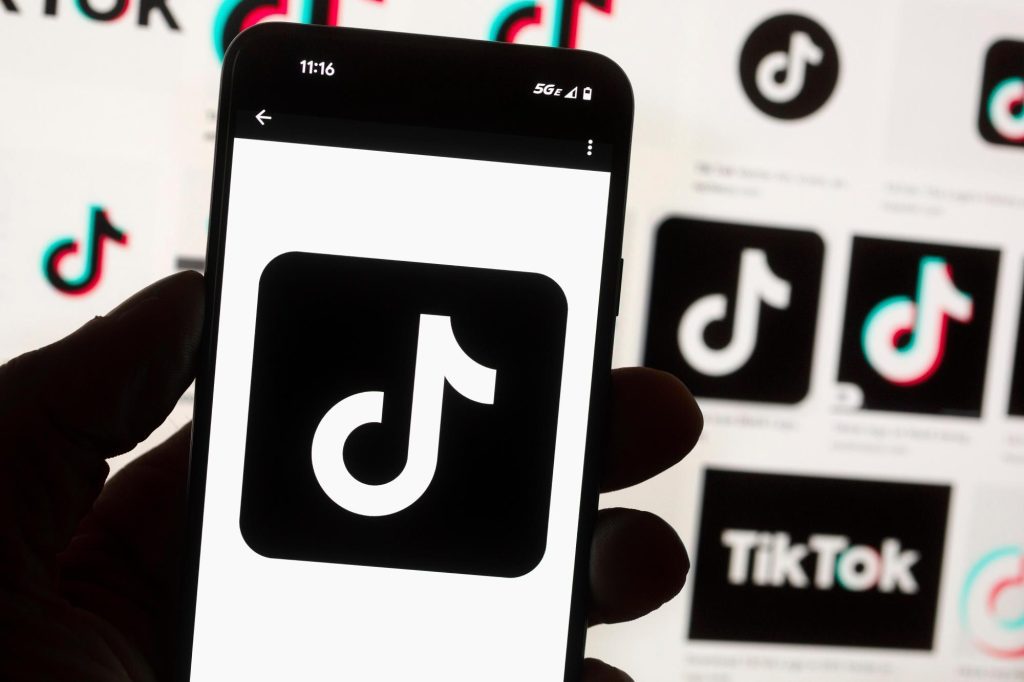By HALELUYA HADERO (AP Business Writer)
TikTok and its Chinese parent company ByteDance are taking the US to court because of a law that could forbid the well-liked video-sharing app unless it’s sold to another company. They argue that this law breaks the First Amendment.
The widely expected lawsuit filed on Tuesday may lead to a long legal battle over TikTok’s future in the United States.
The popular social video company claimed that the law, which President Joe Biden signed included in a larger $95 billion foreign aid package, is so “obviously unconstitutional” that the sponsors of The Protecting Americans From Foreign Adversary Controlled Applications Act are trying to portray the law not as a ban, but as a regulation of TikTok’s ownership. It’s the first time the US government has singled out a social media company with a potential ban, which free speech advocates note is more common in repressive regimes such as Iran or China.
“Congress has taken the unprecedented step of expressly singling out and banning TikTok: a vibrant online forum for protected speech and expression used by 170 million Americans to create, share, and view videos over the Internet,” ByteDance said in its suit. “For the first time in history, Congress has enacted a law that subjects a single, named speech platform to a permanent, nationwide ban, and bars every American from participating in a unique online community with more than 1 billion people worldwide.”
The law requires TikTok’s parent, ByteDance, to sell the platform within nine months. If a sale is already in progress, the company will get another three months to complete the deal. ByteDance has said it “doesn’t have any plan to sell TikTok.” But even it wanted to divest, the company would have to get a blessing from Beijing, which previously opposed a forced sale of the platform and has signaled its opposition this time around.
TikTok and ByteDance argued in the lawsuit that it really isn’t being given a choice.
“The ‘qualified divestiture’ demanded by the Act to allow TikTok to continue operating in the United States is simply not possible: not commercially, not technologically, not legally,” they said.
“There is no question: the Act will force a shutdown of TikTok by January 19, 2025,” the lawsuit says.
The parties argued that they should be protected by the First Amendment’s guarantee of freedom of expression. They are seeking a declaratory judgment that the Act violates the U.S. Constitution; an order enjoining Attorney General Merrick Garland from enforcing the Act and any further relief that the court may deem appropriate.
The Justice Department declined to comment on the suit Tuesday.
The fight over TikTok takes place as US-China relations have shifted to that of intense strategic rivalry, especially in areas such as advanced technologies and data security, seen as vital to each country’s economic strength and national security.
US lawmakers from both parties, as well as administration and law enforcement officials, have had worries that Chinese authorities might make ByteDance give them U.S. user data or influence public opinion by controlling the algorithm that shows content to users. Some also mentioned a study by Rutgers University saying that TikTok content was either being spread more or less than it should be. getting more attention or less than it should be based on its alignment with the interests of the Chinese government, which the company disagrees with.
People against the law argue that Chinese authorities, or other harmful actors, could easily access information about Americans in other ways, such as through companies that rent or sell personal information. They also mention that the U.S. government hasn't shown public evidence that proves TikTok shares U.S. user information with Chinese authorities or manipulates its algorithm for China’s benefit. They also say that trying to ban the app could violate free speech rights in the U.S.
Jameel Jaffer, executive director of the Knight First Amendment Institute at Columbia University, believes TikTok’s challenge to the ban will be successful.
“The First Amendment means the government can’t limit Americans’ access to ideas, information, or media from abroad without a very good reason for it—and no such reason exists here,” Jaffer said in a printed statement.
While TikTok has won in its previous First Amendment challenges, it's not clear if the current lawsuit will be as simple.
“The bipartisan nature of this federal law may make judges more likely to defer to a Congressional determination that the company poses a national security risk,” said Gautam Hans, a law professor and associate director of the First Amendment Clinic at Cornell University. “Without public discussion of what exactly the risks are, however, it’s difficult to determine why the courts should validate such an unprecedented law.”
__________________________
AP Business Writer Michelle Chapman in New York and AP Technology Writer Barbara Ortutay in San Francisco contributed to this story.









